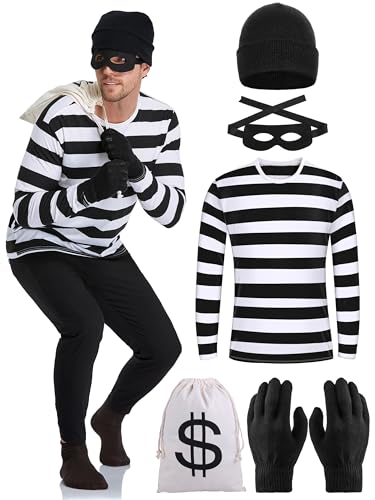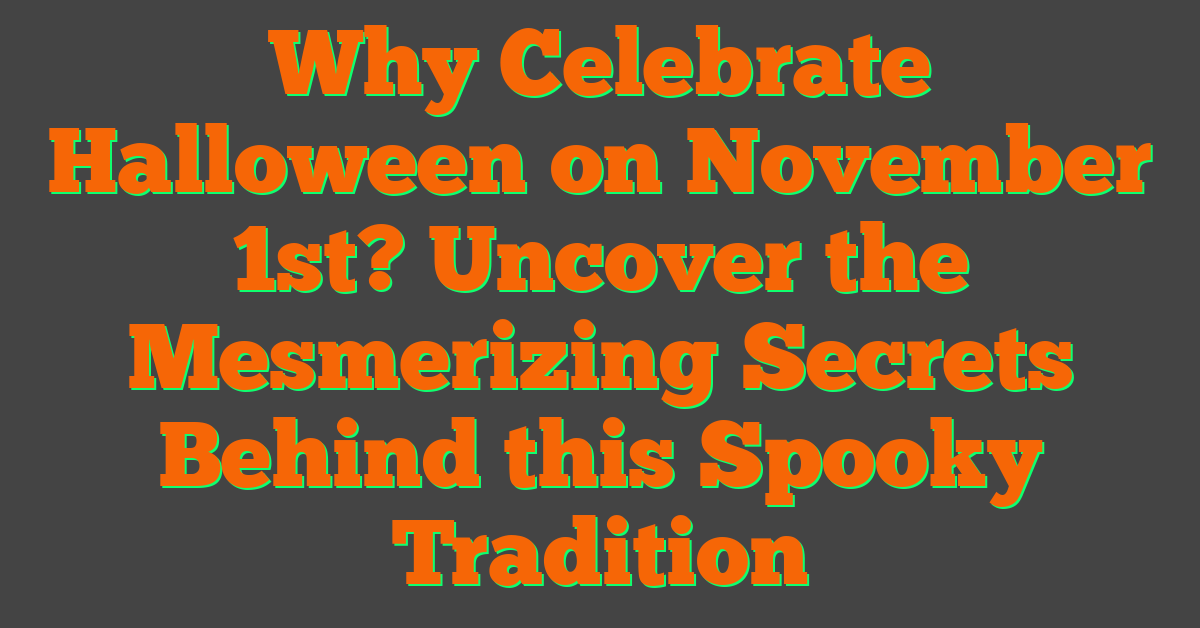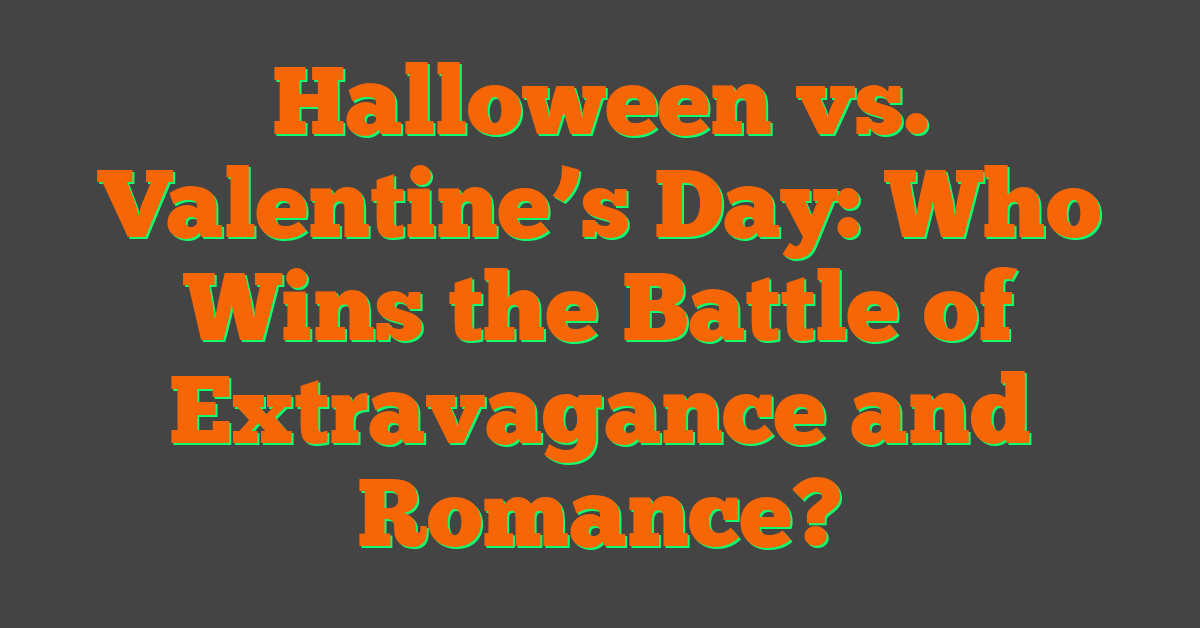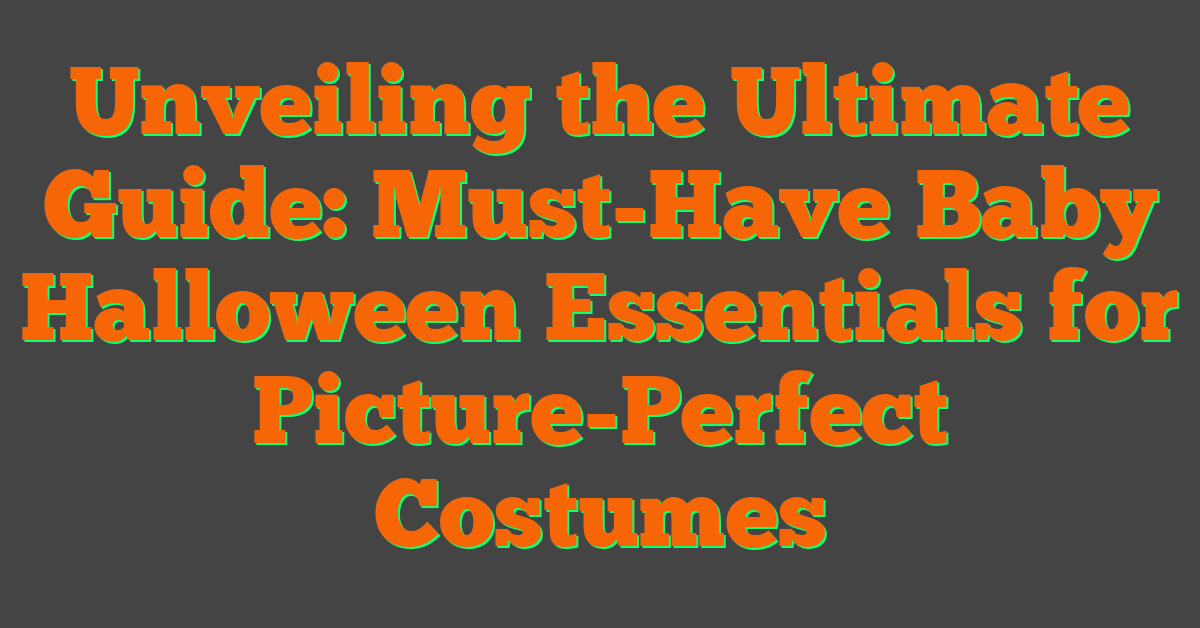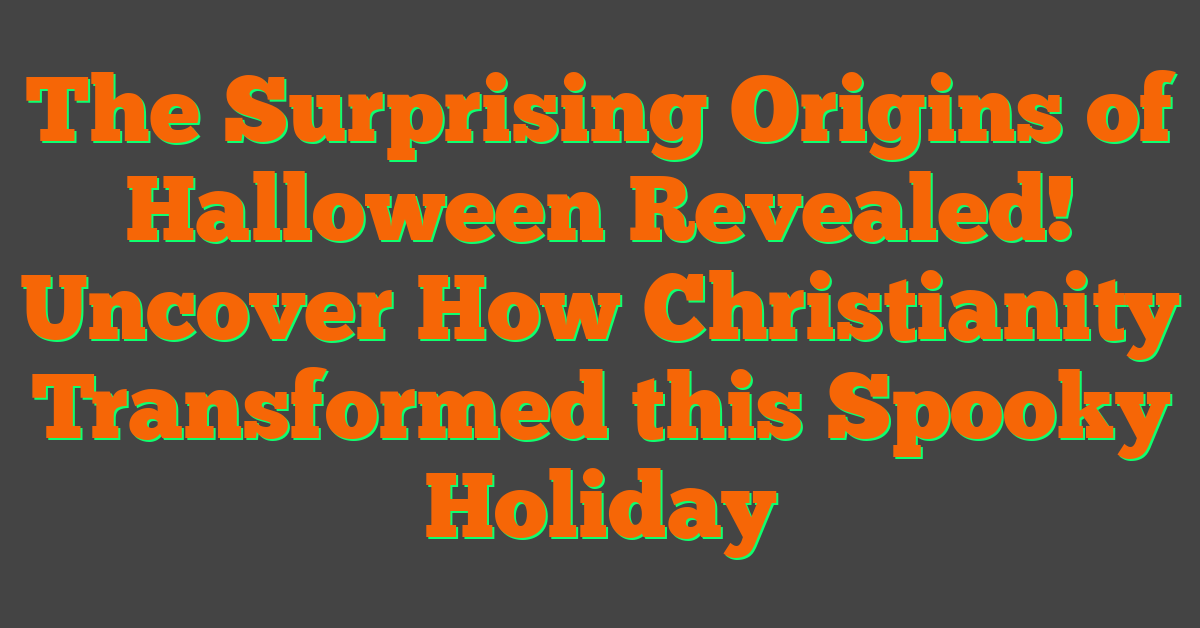Do you ever wonder why Jewish people don’t celebrate Halloween? It’s a question that often comes up during this spooky time of year. While Halloween has become a popular holiday in many parts of the world, it is not traditionally observed by those of the Jewish faith. In this article, we’ll explore the reasons behind this and shed some light on the unique customs and traditions that Jewish people have instead.
When it comes to holidays, Jewish traditions are rich and diverse. While Halloween is known for its costumes, candy, and spooky decorations, Jewish holidays have their own distinct rituals and observances. Understanding the religious significance of these holidays can help shed light on why Halloween is not part of the Jewish calendar.
One of the main reasons Jewish people don’t celebrate Halloween is because it has pagan origins. Halloween traces its roots back to ancient Celtic festivals, specifically the festival of Samhain. In contrast, Jewish holidays are deeply rooted in religious texts and historical events. By focusing on their own religious observances, Jewish people maintain a strong connection to their faith and heritage.
Historical Background of Halloween
As a Halloween enthusiast, you love to immerse yourself in the spooky festivities every year. You’ve always wondered why some people, like the Jewish community, don’t celebrate Halloween. Let’s take a dive into the historical background of Halloween to understand why.
Halloween, also known as All Hallows’ Eve, traces its roots back to ancient Celtic traditions. The Celts celebrated the festival of Samhain, marking the end of the harvest season and the beginning of winter. They believed that on the night of Samhain, the boundary between the living and the dead became blurred, allowing spirits to roam the earth.
When the Roman Empire conquered Celtic territories, they incorporated Samhain into their own traditions. In the 8th century, Pope Gregory III designated November 1st as All Saints’ Day, honoring saints and martyrs. The evening before All Saints’ Day became known as All Hallows’ Eve, which eventually evolved into Halloween.
For Jewish people, the celebration of Halloween is not part of their religious calendar. Judaism has its own rich history and an array of festivals and observances throughout the year. The Jewish holidays are deeply rooted in religious texts and historical events, reinforcing a strong connection to their faith and heritage.
Devoting time and energy to Halloween celebrations could potentially dilute the focus on Jewish customs and teachings. By prioritizing their own observances, Jewish individuals maintain a strong sense of identity and cultural belonging, enriching their connection to their religion.
While Halloween has become a widely celebrated holiday in many cultures, it’s essential to respect and appreciate the diversity of traditions and customs practiced by different communities. Understanding the historical background of Halloween allows us to appreciate the rich tapestry of cultural celebrations that shape our world.
So, next time you prepare for Halloween, whether you’re visiting a Halloween shop or searching for the best Halloween products, remember that the Jewish community expresses their devotion to their faith and heritage through their own unique traditions and observances.
Understanding Jewish Beliefs and Practices
As a Halloween enthusiast, you may be curious why Jewish individuals don’t celebrate this spooktacular holiday. Let’s delve into the rich tapestry of Jewish beliefs and practices to gain a deeper understanding.
1. Religious Significance: One key reason for the absence of Halloween celebrations among Jewish people is that it has pagan origins and is not recognized in their religious calendar. Judaism has its own set of holidays and observances that hold deep religious and cultural significance for its followers.
2. Preservation of Identity: Judaism places great emphasis on preserving its unique identity and cultural heritage. By not participating in Halloween festivities, Jewish individuals prioritize their own observances, fostering a strong sense of connection and belonging within their community.
3. Different Priorities: While Halloween tends to focus on supernatural and spooky themes, Jewish holidays often revolve around themes of reflection, gratitude, and community. For instance, Rosh Hashanah, the Jewish New Year, is a time for introspection and setting intentions for the year ahead. Passover commemorates the liberation of the Jewish people from slavery.
4. Cultural Sensitivity: It’s important to be sensitive to the religious beliefs and practices of others. Recognizing that Halloween may not align with the values and traditions of the Jewish community fosters a more inclusive and understanding society.
By understanding Jewish beliefs and practices, we can respect and appreciate the diverse tapestry of cultures and traditions that make up our world. So, while you may be excited about Halloween, remember that not everyone shares the same traditions and that’s what makes the world so wonderfully diverse.
Jewish Perspective on Celebrating Holidays
As a Halloween enthusiast named Ricky, you love everything about this spooky holiday. From decorating your front yard with cobwebs and tombstones to dressing up in elaborate costumes, Halloween is a time of excitement and fun for you. With a background working at Halloween shops, you have seen it all, from the trendy costumes to the latest decorations. But have you ever wondered why Jewish people don’t celebrate Halloween? Let’s explore the Jewish perspective on celebrating holidays.
For Jewish individuals, maintaining a strong sense of cultural and religious identity is of utmost importance. With their own rich calendar of holidays and observances, such as Rosh Hashanah, Yom Kippur, and Hanukkah, they prioritize their own traditions and celebrations. These holidays often revolve around themes of reflection, gratitude, and community, which are central to the Jewish faith.
Halloween, on the other hand, has its roots in ancient pagan customs and Catholic traditions. It is not part of the Jewish religious calendar, and its focus on supernatural and spooky themes does not align with Jewish beliefs. Instead, Jewish individuals prefer to celebrate their own holidays and embrace their unique cultural heritage.
While Halloween may be a time of festive joy for many, it is important to be sensitive to the religious beliefs and practices of others. Fostering a more inclusive and understanding society means respecting and acknowledging the diverse traditions and customs that exist. So, as you continue to immerse yourself in all things Halloween, take a moment to appreciate the reasons why Jewish people may not partake in this particular holiday.
The Religious Significance of Halloween
As a Halloween enthusiast, you might be wondering why some people, like Jewish individuals, choose not to celebrate this spooky holiday. It’s important to understand that for many Jewish people, Halloween does not hold the same religious significance as it does for others.
A Focus on Reflection and Gratitude
Jewish holidays such as Rosh Hashanah and Yom Kippur have deep spiritual and reflective components. During Rosh Hashanah, the Jewish New Year, individuals take time to reflect on their actions from the previous year and seek forgiveness, both from others and from a higher power. Similarly, Yom Kippur, the Day of Atonement, is a time for fasting, prayer, and introspection. These holidays prioritize reflection, gratitude, and seeking spiritual improvement.
Cultural and Religious Differences
Halloween, on the other hand, originated from pagan beliefs and customs, such as the celebration of Samhain, where people lit bonfires and wore costumes to ward off spirits. The holiday has evolved over time and become more commercialized, but it still retains its supernatural and spooky themes. Jewish individuals may choose not to participate in Halloween due to its pagan origins and focus on supernatural elements, which do not align with their religious beliefs.
Celebrating Community and Togetherness
Another important aspect of Jewish observances is the emphasis on community and togetherness. Many Jewish holidays, such as Passover and Hanukkah, involve gathering with family and friends to celebrate and bond. These celebrations focus on rituals, storytelling, and shared meals. Halloween, on the other hand, is often centered around individual experiences, such as trick-or-treating and attending costume parties, rather than communal or religious gatherings.
Although Halloween may not be widely celebrated within the Jewish community, it’s crucial to understand and respect the religious beliefs and practices of different cultures and religions. By fostering a more inclusive society, we can ensure that everyone feels valued and understood, regardless of their personal choices during this bewitching season.
The Influence of Cultural Assimilation
As a Halloween enthusiast, you may wonder why some cultures do not celebrate this spooky holiday. When it comes to Jewish culture, the lack of Halloween festivities can be attributed to the influence of cultural assimilation.
Throughout history, Jewish people have faced the challenge of assimilating into different societies while still preserving their own traditions. In order to maintain their identity, Jewish individuals have prioritized their own holidays and observances. This includes festivals such as Rosh Hashanah, Yom Kippur, and Hanukkah, which revolve around reflection, gratitude, and community.
Cultural assimilation plays a significant role in shaping holiday celebrations within a community. While some holidays may gain popularity and become widely embraced, others may not align with the cultural and religious practices of a particular group. Halloween, with its pagan origins and focus on supernatural themes, does not align with the beliefs and values of Jewish culture.
Furthermore, Jewish observances prioritize community and togetherness. These celebrations typically involve gathering with family and friends, participating in communal prayers, and sharing festive meals. In contrast, Halloween is often centered around individual experiences, such as trick-or-treating or attending costume parties.
It is important to respect and understand the cultural and religious beliefs of different communities. In fostering a more inclusive society, it is crucial to recognize that not everyone celebrates the same holidays or traditions. By being sensitive to the religious beliefs of others, we can promote understanding and acceptance.
Although Halloween may not be part of Jewish culture, there are still plenty of opportunities to embrace the Halloween spirit. You can decorate your home, carve pumpkins, or even host a costume party with friends. And remember, there’s always an abundance of Halloween products and decorations available to help you create the perfect spooky atmosphere.
So, while Jewish individuals may not celebrate Halloween in the traditional sense, they have their own rich traditions and observances that bring them joy and a sense of community. Understanding and respecting these cultural differences is crucial in fostering an inclusive world where everyone can celebrate their own unique beliefs and traditions.
Common Misconceptions about Jewish Practices
As a Halloween enthusiast, it’s important to have a better understanding of why some communities, like Jewish people, don’t celebrate this spooky holiday. There are a few common misconceptions about Jewish practices that contribute to this decision. Let’s debunk them and shed some light on the reasons behind it.
1. Jewish people don’t celebrate Halloween because they don’t like to have fun.
Contrary to this belief, Jewish people enjoy celebrating a variety of holidays throughout the year. From lively gatherings during Hanukkah to joyful Passover seders, the Jewish calendar is full of opportunities for celebration and enjoyment. While Halloween may not be part of their traditions, Jewish people find joy and fun in their own observances.
2. Jewish people don’t celebrate Halloween because they’re not interested in supernatural themes.
Judaism encourages a focus on more profound and meaningful themes like spirituality, reflection, and community. Halloween’s emphasis on supernatural beings, ghosts, and witches doesn’t align with Jewish beliefs. Jewish people prioritize their own religious observances, which provide a deeper connection to their faith and community.
3. Jewish people don’t celebrate Halloween because they’re against cultural assimilation.
It is true that cultural assimilation is a concern for many Jewish communities. However, the decision not to celebrate Halloween is not solely based on this. Instead, Jewish people prioritize their own holidays and observances that uphold their values of reflection, gratitude, and togetherness. By focusing on their own traditions, they can maintain their unique cultural identity.
Understanding the reasons behind Jewish practices can help foster respect and appreciation for different cultures and traditions. While Halloween might not be part of their celebrations, Jewish people have a rich tapestry of holidays and observances that are filled with meaning, community, and joy. So, as you explore the world of Halloween and look for the best products to enhance your spooky season, remember to appreciate the diverse traditions that make up our rich tapestry of holidays.
Conclusion
By understanding the cultural and religious reasons behind why Jewish people do not celebrate Halloween, you can gain a deeper appreciation for their traditions. Judaism places importance on spirituality and community, which diverges from Halloween’s focus on supernatural themes. It is crucial to recognize that Jewish individuals do enjoy celebrating other holidays throughout the year that align with their values. The decision not to participate in Halloween is not solely about cultural assimilation, but rather about prioritizing their own holidays and observances. Respecting and understanding these reasons can help foster a greater appreciation for the diversity of cultures and traditions in our world.





